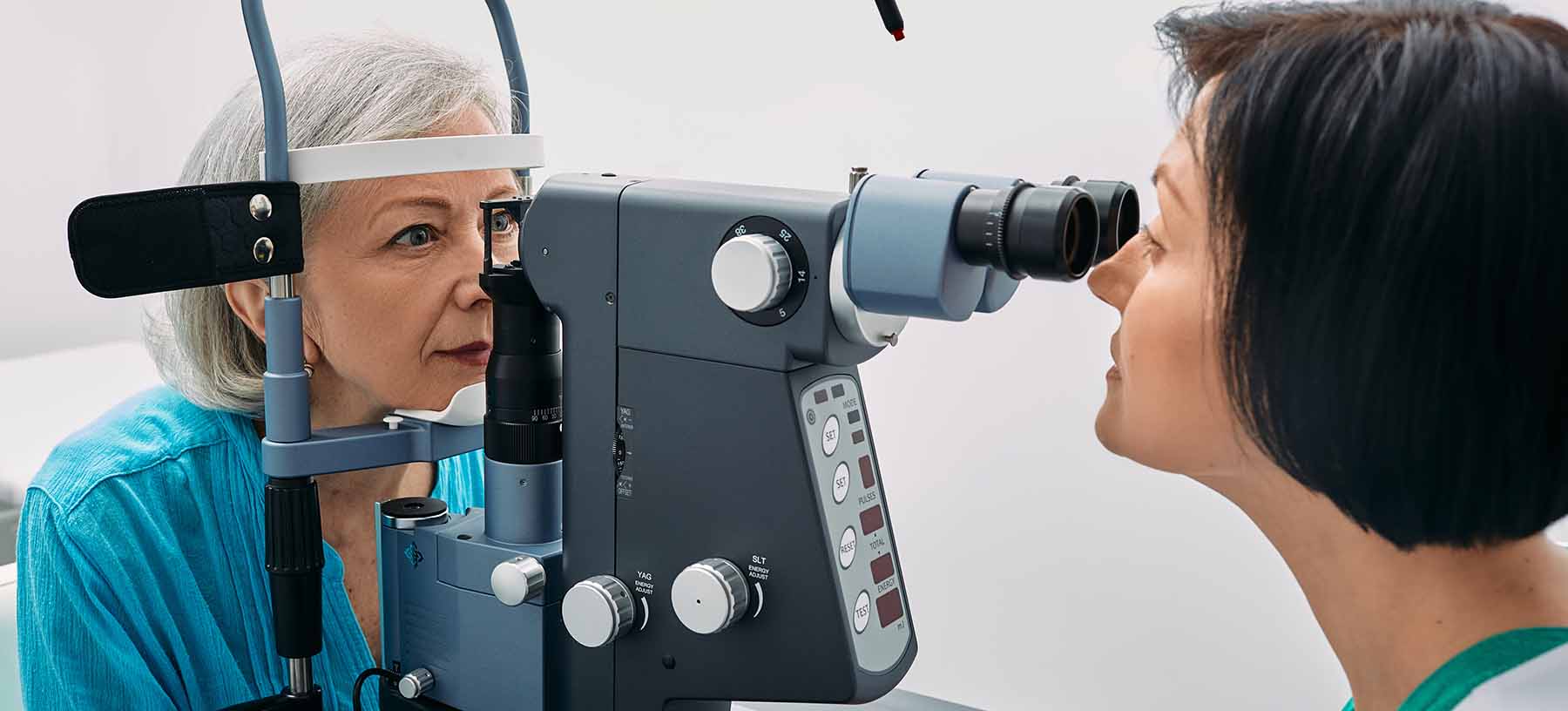Maintaining healthy vision is crucial for our overall well-being. Regular eye exams play a significant role in ensuring good eye health and detecting any potential issues early on. In this blog, we’ll explore the three primary types of eye exams: comprehensive eye exams, dilated eye exams, and vision screenings. Understanding the differences between these exams can help you make informed decisions about your eye care routine and ensure optimal vision health.
Comprehensive Eye Exams
Comprehensive eye exams are thorough evaluations performed by eye care professionals, typically optometrists or ophthalmologists. These exams assess the overall health of your eyes and vision.
Here’s what to expect during a comprehensive eye exam:
- Patient History: The eye care provider will inquire about your medical history, family history of eye diseases, current medications, and any vision concerns or symptoms you may be experiencing.
- Visual Acuity Test: This test measures how well you can see at various distances using an eye chart. It helps determine if you need corrective lenses and evaluates the clarity of your vision.
- Refraction Test: This test determines the appropriate prescription for corrective lenses (glasses or contact lenses) by measuring how light bends as it enters your eyes.
- Eye Movement and Alignment: The provider will assess how well your eyes move and if they are properly aligned, which can indicate issues such as strabismus (eye misalignment).
- Ocular Health Evaluation: Using specialized equipment, the eye care
professional examines the internal and external structures of your eyes, including the retina, optic nerve, and lens, to detect signs of eye diseases such as glaucoma, macular degeneration, and diabetic retinopathy.
Comprehensive eye exams are recommended at least once every two years
for adults and annually for individuals over 60 or those with existing
eye conditions.
Dilated Eye Exams
Dilated eye exams involve the use of dilating eye drops to enlarge the pupils, allowing the eye care professional to get a better view of the retina and optic nerve. These exams are especially important for detecting and monitoring eye diseases that may not present symptoms in the early stages, such as:
- Glaucoma: Increased pressure within the eye can damage the optic nerve, leading to vision loss if left untreated.
- Macular Degeneration: This condition affects the macula, the central part of the retina, causing gradual central vision loss.
- Diabetic Retinopathy: Elevated blood sugar levels can damage the blood vessels in the retina, potentially causing vision impairment or blindness.
During a dilated eye exam, the eye care provider uses specialized instruments to examine the retina and optic nerve for signs of damage or disease. While the effects of the dilating drops may temporarily blur your vision and increase sensitivity to light, the benefits of early disease detection far outweigh these temporary discomforts. Dilated eye exams are typically recommended every one to two years,
depending on your age, risk factors, and overall eye health.
Vision Screenings
Vision screenings are brief assessments designed to identify potential vision problems or refractive errors (nearsightedness, farsightedness, astigmatism) quickly. Unlike comprehensive eye exams, vision screenings are not intended to
diagnose eye diseases or provide a detailed evaluation of eye health. They are often performed in schools, community centers, or workplaces by trained personnel using simple tests such as:
- Visual Acuity Testing: Similar to the visual acuity test in comprehensive eye exams, this test measures how well you can see at a distance using an eye chart.
- Autorefractors: These automated devices estimate your refractive error by analyzing how light is reflected off the retina.
- Eye Cover Test: This test checks for eye alignment issues or amblyopia (lazy eye) by observing how the eyes move when one eye is covered.
Vision screenings can help identify individuals who may require further evaluation by an eye care professional. However, they should not be considered a substitute for comprehensive eye exams, which provide a more in-depth assessment of eye health and vision.
Regular eye exams are essential for maintaining optimal eye health and detecting potential issues early on. By understanding the differences between comprehensive eye exams, dilated eye exams, and vision screenings, you can take proactive steps to preserve your vision and overall well-being. Remember to schedule regular appointments with your eye care provider and prioritize your eye health as part of your overall healthcare routine. Your eyes are precious, and investing in their care can help you enjoy clear vision and a better quality of life for years to come.


